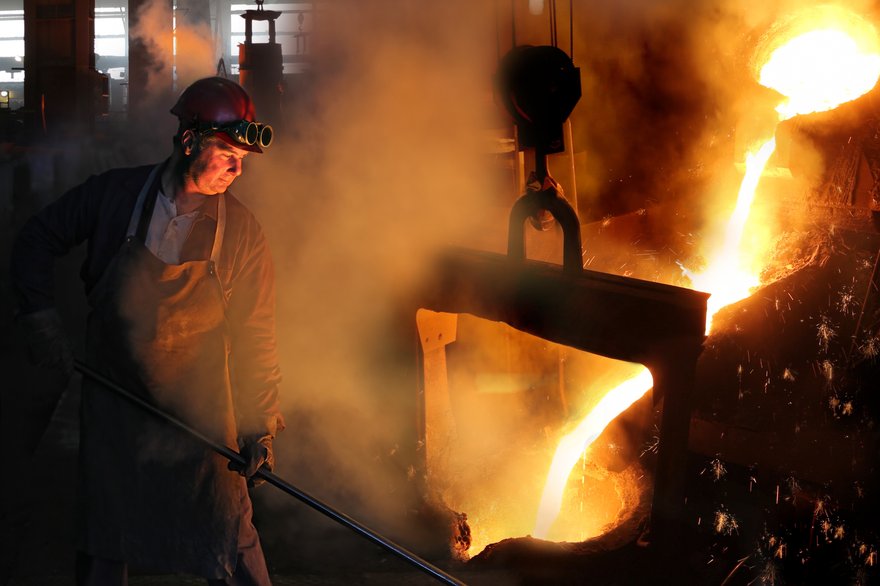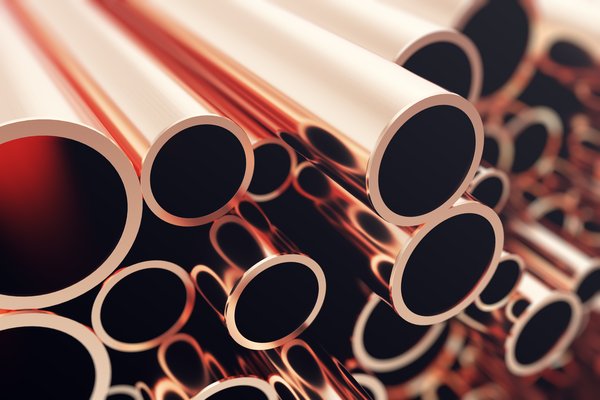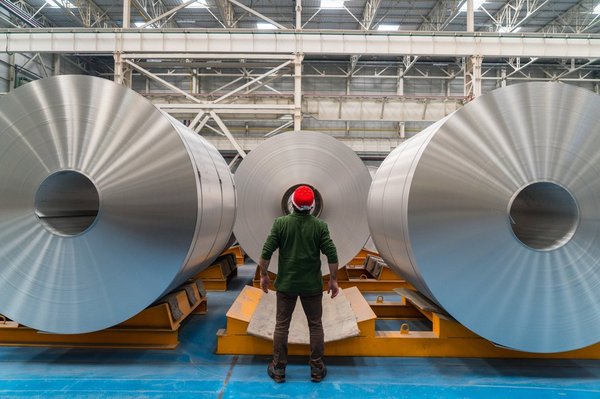Brass -- an alloy of copper and zinc -- is valued for its resistance to corrosion and is often used in plumbing, architecture, and hardware applications. Since it's found in so many areas, brass stocks are a worthy consideration for many investors. We'll look at three companies that rely on brass, examine the pros and cons of brass-related stocks, and consider the bottom line of investing in this important alloy.

First used thousands of years ago, brass continues to play an important part in our daily lives. Homeowners, for example, will often turn to brass products for home improvement projects. On a bigger scale, as billions of dollars in funds from the Infrastructure Investment and Jobs Act become available and projects begin development, demand for brass (as well as other commodities) is expected to remain high. While there aren't pure-play brass stocks, investors can add some luster to their portfolios by turning to companies that rely on brass. Masco (NYSE:MSO), Mueller Industries (MLI -1.85%), and Schnitzer Steel (NYSE:SCHN), for example, are three top companies with brass operations for investors to consider in 2024.
Masco
Masco
Founded in 1929, Masco began with the manufacturing of parts for the auto industry. However, it has grown into a corporation that owns some of the best-known home improvement and building brands, such as Behr Paint Company and Delta Faucet.
Masco has two operating segments: decorative architectural products and plumbing products -- the latter of which is responsible for most of the company's brass offerings.
With its leading home improvement offerings, Masco generates steady revenue and earnings. The company plans on deploying some of this capital toward acquisitions -- it forecasts acquisitions will account for 1% to 2% annual revenue growth for the foreseeable future -- it is also dedicated to rewarding shareholders. Over the past 10 years, Masco has hiked its dividend at a 14.3% compound annual growth rate.
Evidently, Masco doesn't expect to slow its dividend raises anytime soon. Management has stated a long-term annual dividend growth target of more than 10% while maintaining a conservative payout ratio of less than 30%. Over the past five years, Masco has averaged a payout ratio of 26.6%, so its target of keeping the payout ratio below 30% certainly seems reasonable.
Mueller Industries
Mueller Industries
Headquartered in Tennessee, Mueller Industries is a company that manufactures copper products as well as those made from aluminum, steel, plastics, and, of course, brass -- a material deeply embedded in the company's identity. The history of Mueller Industries stretches back to 1917, when the company's founders discovered an innovative method of forging brass.
With more than a century of experience in working with brass, Mueller Industries is skilled with the alloy. In fact, Mueller Industries characterizes itself as "the only vertically integrated manufacturer of copper tube and fittings, brass rod and forgings in North America."
The major source of exposure to brass comes from two companies in the corporation's portfolio of brands. First, Mueller Brass is a manufacturer of brass and aluminum forgings, brass rods, brass bars, and other products that supply parts to original equipment manufacturers worldwide. Mueller Refrigeration also makes brass fittings (and other parts) for the commercial heating, ventilation, and air conditioning (HVAC) and refrigeration industries.
Conservative investors will find Mueller Industries particularly appealing. In addition to a strong balance sheet that includes zero net debt, Mueller Industries has demonstrated excellent operating efficiency, as evidenced by an average return on equity of 29.3% over the past five years.
Schnitzer Steel Industries
Schnitzer Steel Industries
Essentially a recycling company, Schnitzer Steel Industries dates back to 1906, when its founder started a scrap metal business in Oregon. Today, the company specializes in recycling a variety of metals, both ferrous and nonferrous. It operates 54 recycling facilities throughout the United States and in western Canada.
In addition to iron-based products, which the company sells for use in steel mills and foundry melting, Schnitzer Steel also sells nonferrous metals (like aluminum, brass, copper, and nickel) for use in numerous sectors, including transportation, communication, construction, and energy.
Working to improve the recoverability of nonferrous metals, Schnitzer Steel is in the midst of a $130 million strategic initiative to develop advanced metal extraction and separation technologies that should be completed by the end of 2023. According to Schnitzer Steel, the initiative will allow the company to produce "more furnace-ready products, including twitch, brass, zinc, stainless steel, copper and other metals."
A mature business, Schnitzer Steel has recognized steady revenue growth over the past decade, but what stands out from the company's financials is the company's impressive ability to grow cash from operations.
Pros and cons
Pros and cons of investing in brass
Here are some factors for brass-focused investors to consider.
Pros:
- Exposure to a diverse range of sectors: Because brass is used in various applications -- from plumbing to maritime to architecture -- investors mitigate the risk of a downturn in a specific sector.
- Continuing demand: While the possibility of innovation in materials always exists, brass has been around for thousands of years, and it's hardly likely it will fall out of favor in the near future.
- Easy sourcing: Unlike rare earth metals, the components of brass -- copper and zinc -- are found in many deposits around the world, and the supply chain of these metals is not as likely to be disrupted as those of other metals. Mueller Industries, for example, procures 95% of copper and brass raw materials from domestic sources, ensuring a strong supply.
Cons:
- Market volatility of copper and zinc: As with any commodity, there's the risk of a downturn in the prices of copper and zinc. Should this occur, it could be challenging for companies that specialize in brass.
- Options are limited: While there are worthwhile brass stocks to consider, these individual companies may not be a good fit for some investors. If this is the case, there aren't many other choices, so investors may be unhappy with the limited options available to them.
- A bear market could be troubling: Although the fact that brass is used in a variety of industries is a positive, it's important to recognize that brass stocks aren't immune to downturns in the economy. If spending on home improvement or new construction declines, brass stocks could suffer.
Related investing topics
The bottom line on brass stocks
With the housing market showing some signs of slowing down, many people are staying in their current homes and deciding to invest in home improvement projects. Masco is a brass stock that stands to benefit from this trend. Because infrastructure projects should boom in the coming years, metal stocks and materials stocks are also gaining attention from investors, leading some investors to pay particular attention to brass stocks like Mueller Industries. Additionally, investors interested in building a better portfolio with a construction stock or an industrials stock ought to consider Mueller Industries. People more interested in recycling stocks, on the other hand, should consider Schnitzer Steel.



















